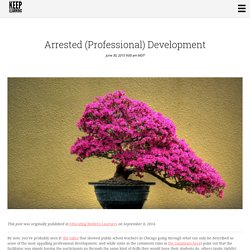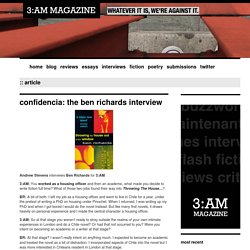

Australian schools are stuck in the industrial era, says Mitchell Institute report. Australia's school system is stuck in the industrial era and is not teaching students how to deal with complex environments and the multiple careers they will experience in the 21st century, according to a new report from the Mitchell Institute.

"The basic model of education has been largely static in the face of changes in the broader economy," said the report Preparing young people for the future of work, released on Monday, . It said school education was failing on two fronts. Firstly, tests such as NAPLAN and the OECD's Programme for International Student Assessment show Australian students are not advancing in fundamental skills such as literacy, numeracy and scientific knowledge and, in many cases, going backwards. And secondly, schools are not successfully teaching the broader skills needed for the 21st century workplace, such as creative and critical thinking, collaboration, curiosity and resilience. 8 Great Places To Find Articles Worth Reading On The Web. The Internet is arguably the best news morgue on the planet right now.

And apart from that great collection of old articles, thousands of new ones are added every day. There are so many articles on the Web now that the need of the hour is finding the good ones.
Foundation English. Homeschooling. Philosophy. New Archive Offers Free Access to 22,000 Literary Documents From Great British & American Writers. Thomas Hardy—architect, poet, and writer (above)—gave us the fierce, stormy romance Far From the Madding Crowd, currently impressing critics in a film adaptation by Thomas Vinterberg.

He also gave us Tess of the D’Urbervilles, The Return of the Native, and Jude the Obscure, books whose persistently grim outlook might make them too depressing by far were it not for Hardy’s engrossing prose, unforgettable characterization, and, perhaps most importantly, unshakable sense of place. Hardy set most of his novels in a region he called Wessex, which—much like William Faulkner’s Yoknapatawpha—is a thinly fictionalized recreation of his rural hometown of Dorchester and its surrounding counties.
Now, thanks to the University of Texas at Austin’s Harry Ransom Center, we can learn all about this ancient region in South West England, and Hardy’s transmutation of it, through Hardy’s own proof copy of a 1905 book by Frank R. Related Content: » Arrested (Professional) Development. This post was originally published in Educating Modern Learners on September 8, 2014.

By now, you’ve probably seen it: the video that showed public school teachers in Chicago going through what can only be described as some of the most appalling professional development. And while some in the comments (also in the comments here) point out that the facilitator was simply having the participants go through the same kind of drills they would have their students do, others (quite rightly) noted that it was poor pedagogy, no matter the intended audience: teacher or student. Professional development, like any teaching, is extraordinarily difficult to do well.
Unfortunately, most of us have experienced poor (ok terrible) professional development sessions during our careers. 100 Percent Is Overrated. At whatever age smart people develop the idea that they are smart, they also tend to develop vulnerability around relinquishing that label.

So the difference between telling a kid “You did a great job” and “You are smart” isn’t subtle. That is, at least, according to one growing movement in education and parenting that advocates for retirement of “the S word.” The Neuroscience Behind Stress and Learning. The realities of standardized tests and increasingly structured, if not synchronized, curriculum continue to build classroom stress levels.

Neuroimaging research reveals the disturbances in the brain's learning circuits and neurotransmitters that accompany stressful learning environments. The neuroscientific research about learning has revealed the negative impact of stress and anxiety and the qualitative improvement of the brain circuitry involved in memory and executive function that accompanies positive motivation and engagement. Theory. Confidencia: The Ben Richards Interview. Andrew Stevens interviews Ben Richards for 3:AM. 3:AM: You worked as a housing officer and then an academic, what made you decide to write fiction full time?

What of those two jobs found their way into Throwing The House…?